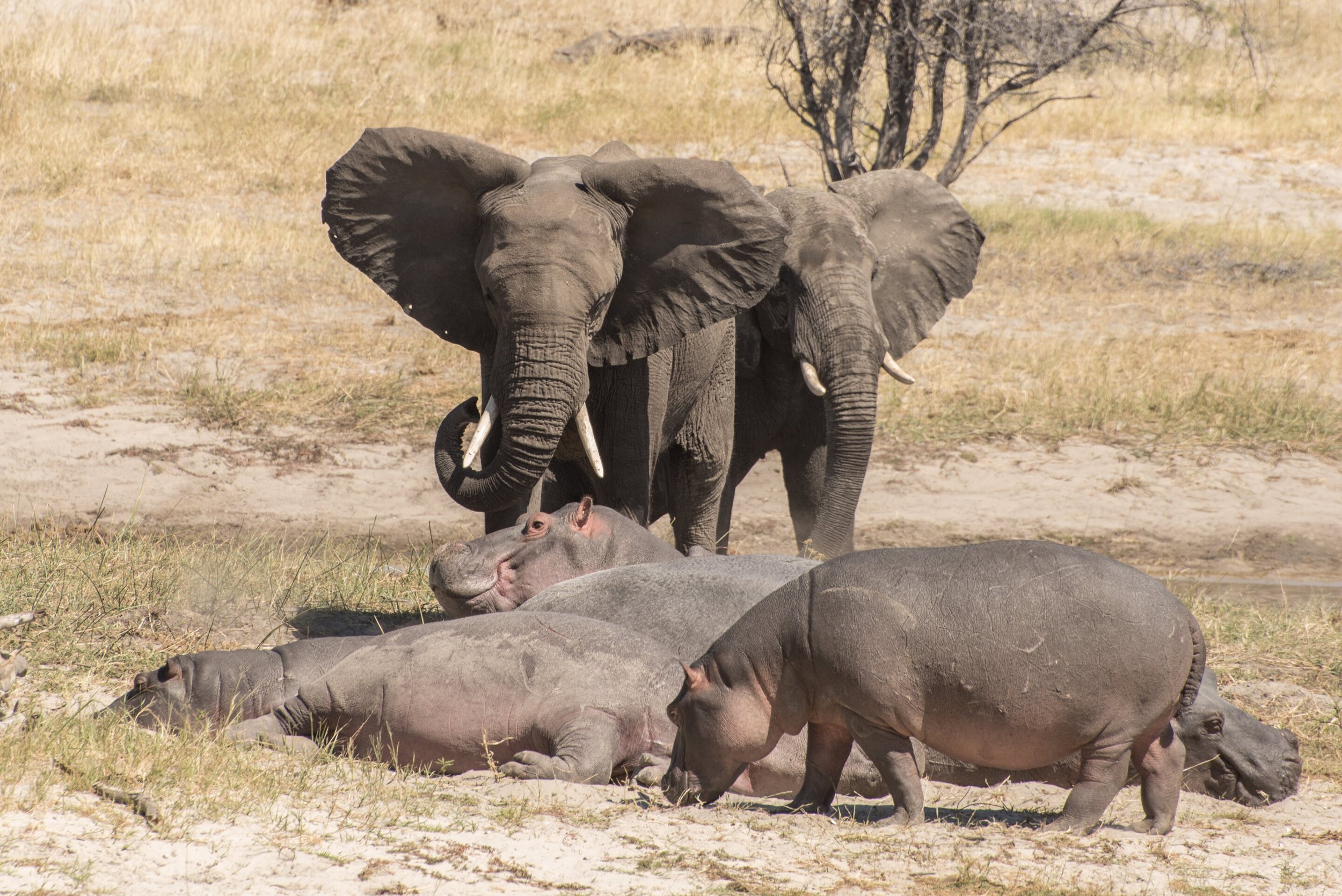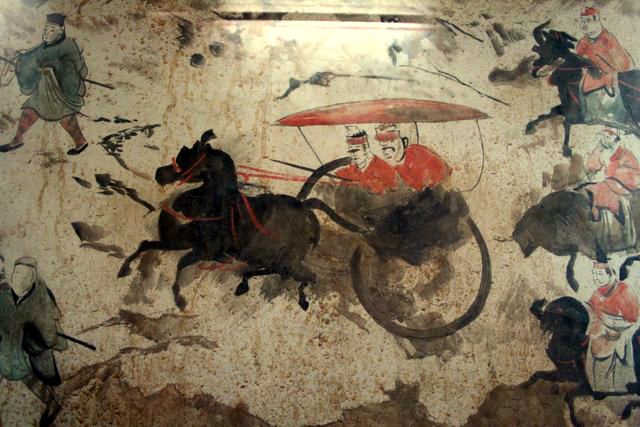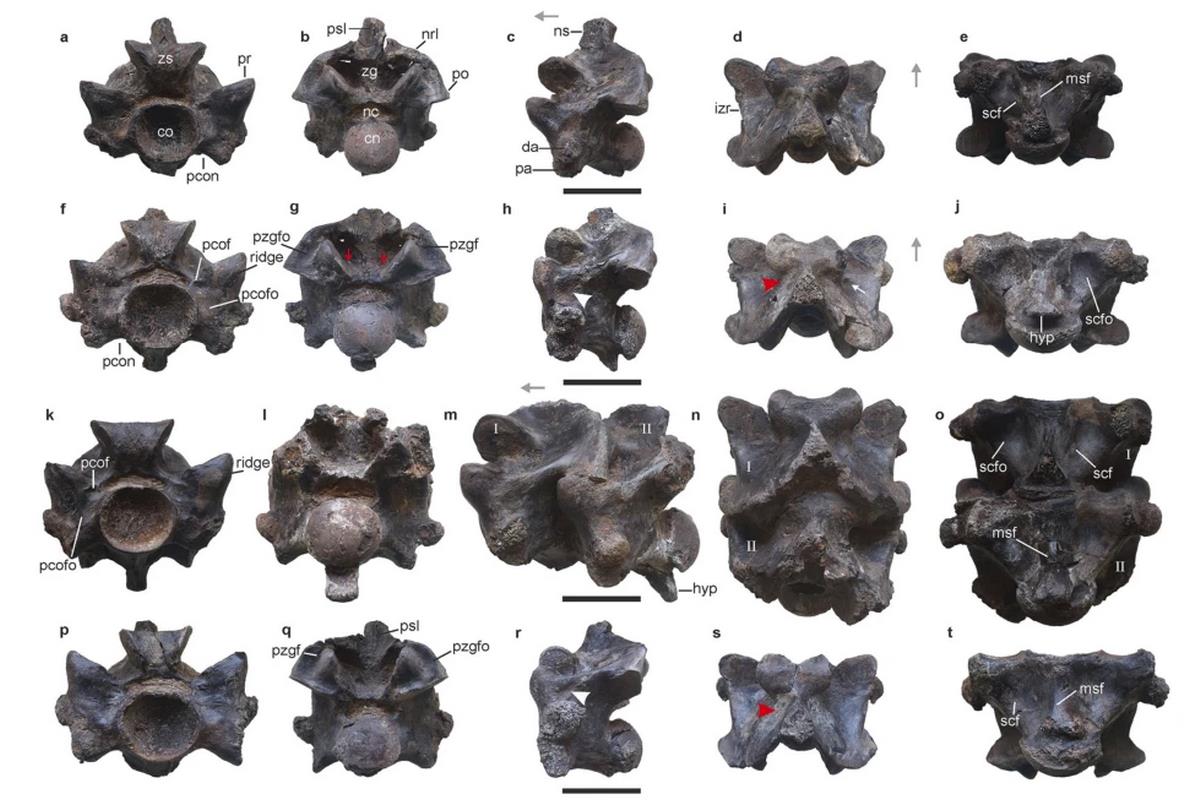PICTURED: Adolescent elephants bothering some hippos. PC: Connie Allen, Univ. of Exeter. Released.
New research has found that the presence older male elephants reduces the frequency of young male elephant attacks on things like cars, humans, and other animals, suggesting wise old bulls can be used strategically to curb elephant-human conflict.
Despite common misconceptions, nearly the largest driver of elephant poaching is poverty among humans surrounding parks in which elephants can be found. This can be exacerbated if a poor farmer wakes up in the middle of the night to find an 8 ton elephant has invaded their farm and eaten half their seasonal income.
Preventing these kinds of wildlife conflicts are key to protecting elephant populations, and a recent study into the behavior of male elephants may have revealed the best way to curb unneighborly conduct among young pachyderms.
Looking at elephants across age groups over a period of three years in the Makgadikgadi Salt Pan in Botswana, researchers from the University of Exeter have found that, if there is a lack of mature bull males around, adolescent male elephants increase their attacks on humans, cars, buildings, and other wildlife.
“It appears the presence of more knowledgeable, older elephants in groups may play a key role in keeping the younger, less experienced males calm and lowering their perception of their current threat level, which means there’s less risk of aggression towards humans and other species,“ said lead author Connie Allen of Exeter’s Centre for Research in Animal Behavior.
There’s more to this finding than just observations. In Pilanesberg National Park of South Africa it’s been used to stop aggressive, isolated adolescent elephants from killing rhinos. Ecologist Gus Van Dyke told the BBC about his discovery that young elephants, overtaken by the frenzy of “musth,” the biological breeding mechanism that floods the young males with hormones and aggression, were deliberately attacking and killing rhinos.
Putting the kids in their place
Van Dyke explained that when an adolescent meets a bull male in the breeding season, his body immediately exists musth; not to do so might lead to a very one-sided physical altercation. However in Pilanesberg during the 1970s, many juvenile and baby elephants, being lighter and less dangerous, were transported from other nearby parks like Kruger, while all the big bulls were left behind.
He realized that the key to stopping this gang of delinquents was to bring some law and order to the park; and he was 100% correct. Six bulls arriving from Kruger put the whippersnappers in their place within mere weeks, and no rhinos have been killed by elephants ever since.
In terms of wildlife management in African parks, bull elephants don’t carry a particularly strong value, as they have passed on their genes, and tend to be targeted by poachers for their tusks, or sold for hunting to fund conservation.
“These new results highlight the important role that old male elephants can play in shaping the behavior of younger males, which are more aggressive in the absence of old bulls – including towards vehicles,” said Professor Darren Croft at Exeter.
“These findings provide an important message for wildlife managers and suggest that the removal of old male elephants from populations could lead to an increase in human-wildlife conflict”.
Poaching for ivory notwithstanding, human-elephant conflict for land and resources is a big problem that would probably need to be solved before humanity can guarantee the elephant’s survival. It’s a problem that’s growing in some cases. The Masai Mara has experienced a 50% growth in crop raiding incidents since the year 2000, and revenge killings doubled, a phenomenon which Foreign Policy reports was more than poaching in the nearby Amboseli National Park.
In India, and across Asia, elephant-human conflict is even worse, with perhaps hundreds dying every year on both side across the range of the more endangered Asian elephant.
Ensuring older bulls inhabit areas in sufficient numbers may be an ideal solution to reduce human elephant conflict, the frequency of which will only grow as Africa continues to modernize.



